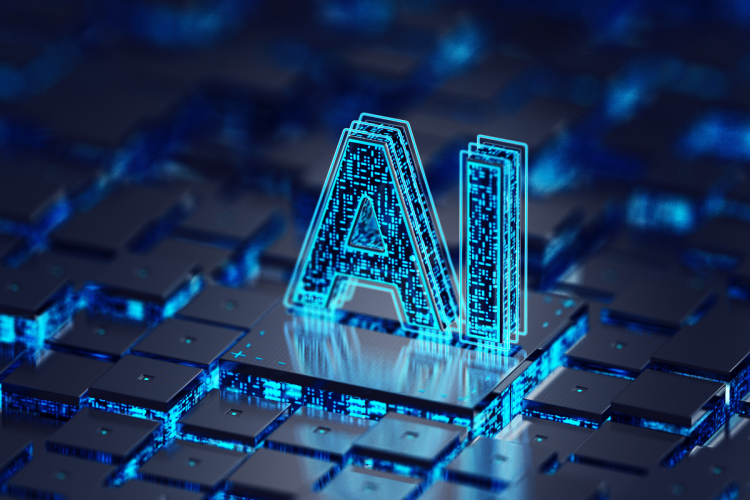G7 leaders reaffirm support for responsible AI deployment

As artificial intelligence (AI) transforms every sector of the global economy, the leaders of the G7 nations, at the 2025 G7 Summit in Kananaskis, Alberta, issued a strong, unified statement reaffirming their commitment to ensuring this transformation benefits people, promotes inclusive prosperity and supports responsible innovation. In their “G7 leaders’ statement on AI for prosperity”, the world’s leading democracies laid out a roadmap for adopting trustworthy AI at scale – balancing economic opportunity with ethical stewardship and energy sustainability.
From awareness to adoption: Public sector AI with purpose
One of the core pillars of the G7’s new vision is leveraging AI in the public sector. Governments are being called to not only regulate AI but to actively use it to improve public services, drive efficiency and better respond to citizens’ needs – all while maintaining privacy, human rights and democratic values.
To lead this effort, Canada, in its role as G7 president, has announced the GovAI Grand Challenge. This initiative includes a series of “rapid solution labs” that will develop creative, practical AI solutions to accelerate public sector transformation. These efforts will be coordinated through the to-be-established G7 AI Network (GAIN), which will connect expertise across member countries and curate a catalogue of open-source, shareable AI tools. Additional details on these programs are forthcoming.
Empowering SMEs to compete in the AI economy
The G7 leaders also acknowledged a key truth: small- and medium-sized enterprises (SMEs) are the lifeblood of modern economies. These businesses generate jobs, drive innovation and build resilient local economies. Yet they often face significant barriers to AI adoption, from lack of access to computing infrastructure to gaps in digital skills.
To close this gap, the G7 launched the AI Adoption Roadmap – a practical guide to help businesses, particularly SMEs, move from understanding AI to implementing it. The roadmap includes:
- Sustained investment in AI readiness programs for SMEs
- A blueprint for scalable, proven adoption strategies
- Cross-border talent exchanges to boost in-house AI capabilities
- New trust-building tools to give businesses and consumers confidence in AI systems
This comprehensive approach is designed to help SMEs not only catch up but leap ahead – adopting AI in ways that are ethical, productive and secure.
To support this initiative, and as part of the broader $2-billion Canadian Sovereign AI Compute Strategy, on June 25, 2025, the Government of Canada announced a fund that will support Canadian SMEs in accessing high-performance compute capacity to develop made-in-Canada AI products and solutions. Applications for the AI Compute Access Fund can now be submitted.
A workforce ready for the AI era
The shift to an AI-powered economy will demand a new kind of workforce. The G7 leaders reaffirmed their support for the 2024 Action Plan for safe and human-centered AI in the workplace. This includes investing in AI literacy and job transition programs, especially for those in sectors likely to be most affected.
Crucially, the G7 also emphasized equity and inclusion – particularly encouraging girls and underrepresented communities to pursue STEM education and grow their presence in the AI talent pipeline. As AI reshapes our economies, building a diverse and resilient workforce is not only a moral imperative but an economic one.
Tackling the energy footprint of AI
With the exponential growth of large AI models comes a steep rise in energy consumption. The G7 acknowledged the environmental toll and vowed to address it head-on. In a first-of-its-kind commitment, member nations will work together on a comprehensive workplan on AI and energy, due by the end of 2025.
This work will focus on developing energy-efficient AI systems, optimizing data center operations and using AI itself to drive clean energy innovation. The goal: ensure that the AI revolution doesn’t come at the cost of our planet – but instead helps to preserve it.
Partnering for global inclusion
Finally, the G7 turned their focus outward to the developing world, where digital divides threaten to leave billions behind. Leaders committed to expanding AI access in emerging markets through trusted technology, targeted investment and local collaboration.
From the AI for Development Funders Collaborative to partnerships with universities and international organizations, the G7 aims to build mutually beneficial partnerships that bridge capacity gaps and support locally driven AI innovation.
The technology, intellectual property and privacy group at MLT Aikins are tracking developments in the regulation, governance and deployment of AI in today’s modern economy and can give you the advice you need to navigate the ever– changing world of AI.
Note: This article is of a general nature only and is not exhaustive of all possible legal rights or remedies. In addition, laws may change over time and should be interpreted only in the context of particular circumstances such that these materials are not intended to be relied upon or taken as legal advice or opinion. Readers should consult a legal professional for specific advice in any particular situation.




